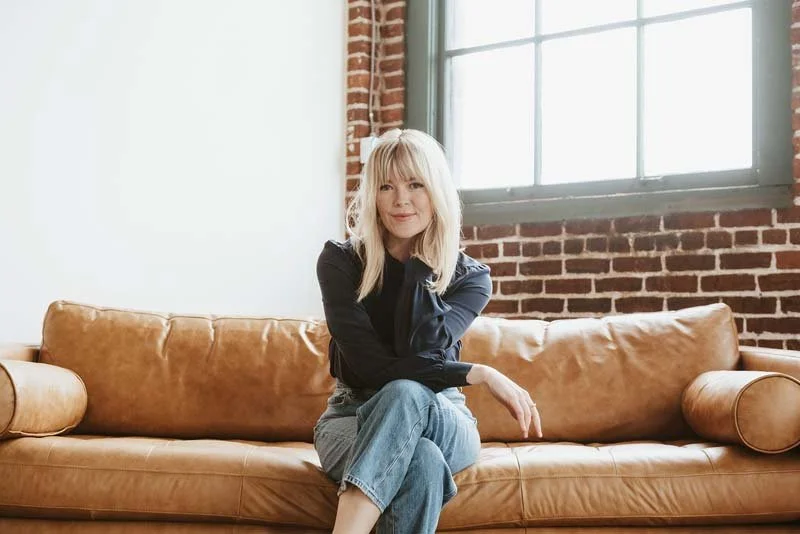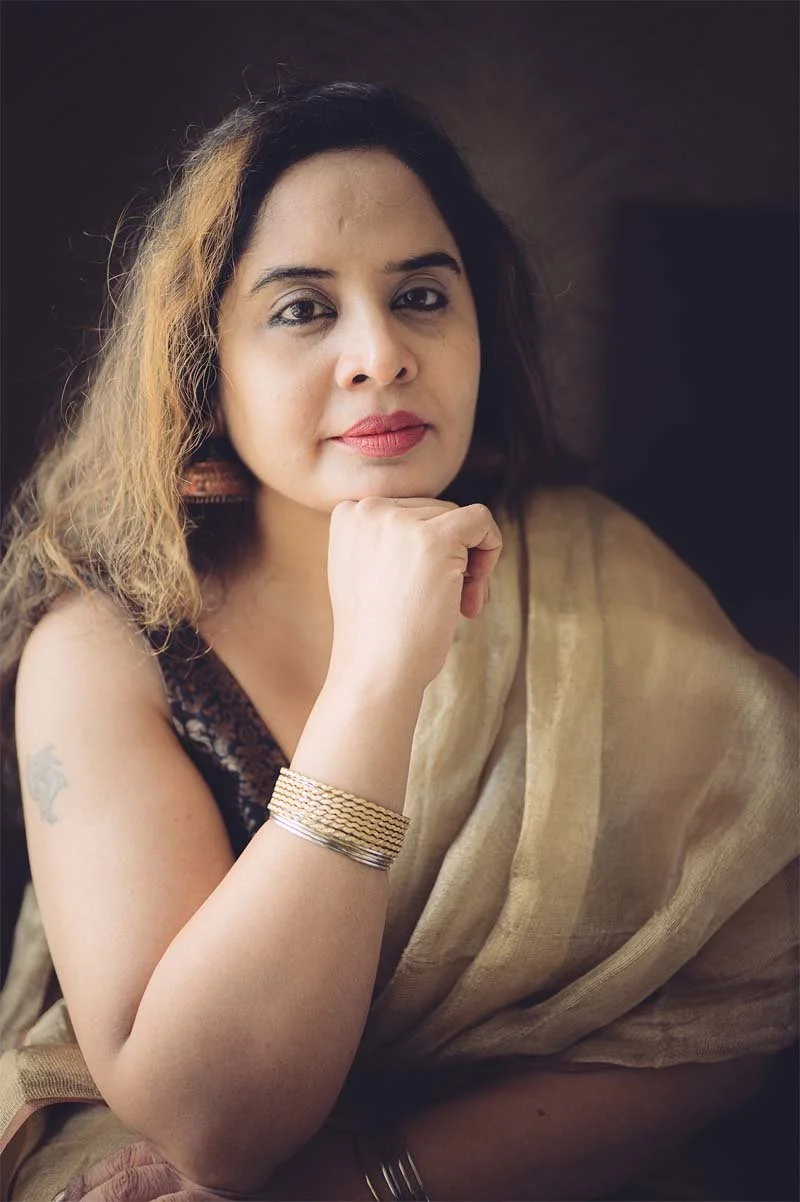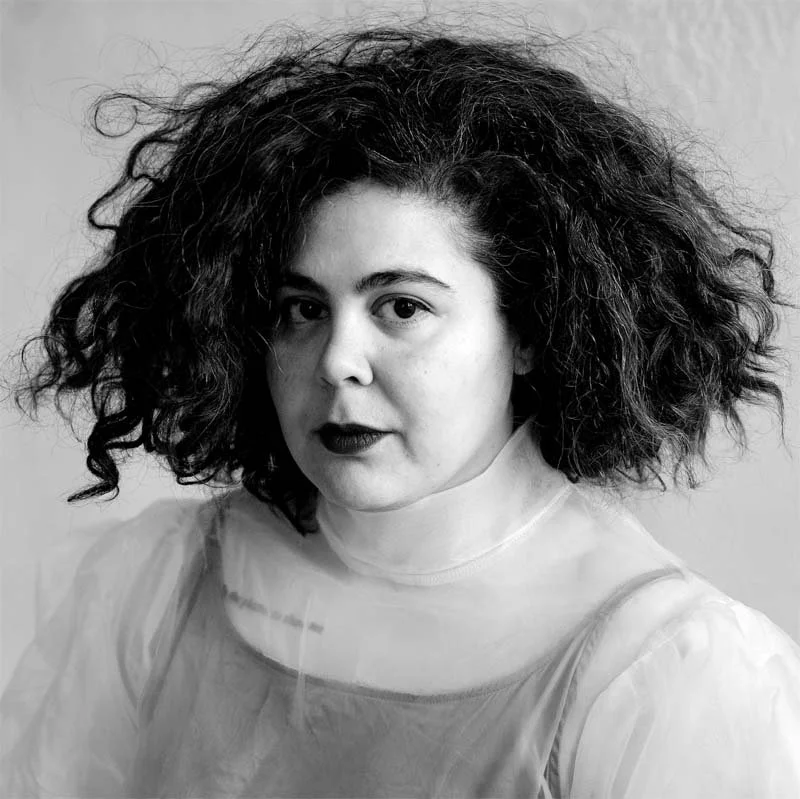Chelsea Bieker is the author of three books, including the national bestselling novel Madwoman, hailed by The New York Times as “brilliant” and named a best book of the year by NPR, Oprah Daily, and Elle. Her debut novel Godshot was a Barnes & Noble Pick of the Month and longlisted for The Center for Fiction First Novel Prize. Her story collection Heartbroke won the California Book Award and was a New York Times Best California Book of 2022. A Rona Jaffe Writers’ Award recipient, she lives in Portland, Oregon, and co-creates The Fountain with writer Kimberly King Parsons. @chelseabieker
Where were you born and raised? How did it influence your writing and your thinking about the world?
I was born and raised in the agricultural heart of the San Joaquin Valley—Fresno—though my earliest years, from birth until I was about six, were actually spent in Hawaii. My father was working as an inspector on the H3 tunnels that went through the Koʻolau Range on the island of O'ahu. Those formative years in Waikiki and later in Kāneʻohe gave me this first understanding of beauty and nature amid a harsh homelife dominated by violence. When my parents split up, I moved with my mother back to her hometown of Fresno. The contrast of moving from that lush, vibrant landscape to the stark, often harsh terrain of the Central Valley created this sense of displacement that I think has always informed my writing. Those years spent with her alone in Fresno from six to nine were some of the darkest of my life. After she left, I was raised primarily by my grandparents. That experience of maternal absence became a well I return to in my fiction—the ways children make sense of abandonment, how they create their own mythologies to survive.
My childhood was devastating and I became an artist to survive it. I can see my own resilience in my desire to bring a perspective of humanity to these forgotten pockets of our country, to shine a light on the effects of male violence and addiction, and I want my writing to honor that while never flinching from the harshness and the heartbreak.
What kind of reader were you as a child? What books made you fall in love with reading as a child? I read Stephen King, R.L. Stein, magazines, the Bible. Whatever I could find, really. My mom's side of the family loved literature and so often I was gifted books. My mom took me to the library and read to me a lot. Stories and language were the only place I felt I belonged. I was a voracious reader. I was drawn to suspense and thrillers, but also memoirs and deeply emotionally stirring stories. I wanted what I was reading to reflect the things I'd felt and experienced. I read a lot of adult books as a child because no one was monitoring me and I think it was great in a way. I loved Harry Potter because I related deeply to his inner experience as a parentless child, I loved A Wrinkle in Time, Bridge to Terabithia, The Lovely Bones, Where the Heart Is, Rose Madder, and Hearts in Atlantis to name just a few off the top of my head.
Describe your typical writing day.
As a mom of two young kids, my days aren't always predictable, so I'll run down an ideal writing day. If things all align, my day after drop off would be a twenty minute walk, then a five minute meditation (I love the guided visualizations co-created with Kimberly King Parsons for The Fountain (our membership based platform for creative awakening) and then I go straight into a timed two hour block of writing while listening to binaural frequencies. I tend to try to intuitively move toward the project each day. Maybe that means going back to the start, or maybe I'm just generating new material. I do edit as I go. I don't outline before I write—I've found that when I try to plan too much, the work loses its electricity. Instead, I follow language and image, trusting that the subconscious knows what story needs to emerge.
I revise extensively, though. That's where the real writing happens for me—in the layering and sculpting of the raw material that comes out in early drafts. I really have a strong sense of self-trust in terms of just following my nose around the book. I tend to think the story already exists inside of me fully and writing is an act of listening and reverence to a process that is ultimately really spiritual. At the same time, I believe we have to be disciplined about showing up. If you don't show up, that magic part doesn't have a chance to come through. I tell my coaching clients when they are having trouble making time for their writing, to start small. Setting a timer for even 30 minutes to stare at a blank page while doing nothing else is an act of devotion. Slowly, if you keep doing that, something will occur. At the end of the two-hour writing time, I can take a snack break, stretch, regroup, and then go back in for more, or maybe that's it for the day, depending. When I'm done I do a short handwritten reflection in a journal about how the day went. That three-step process--the visualization, the writing, and the reflection is how I get work done. The rest of the day involves being a mom, answering client emails or having sessions, working on The Fountain, reading, and finding time for yoga or swimming or some other movement. Movement is how I keep my channels open. I am stagnant and stuck without it. Writing is a full-body process for me.
Tell us about the creative process behind your most well-known work or your current writing project.
I think a lot about writing into my own personal fantasy. Fiction can offer us what we didn’t receive in real life. Whether that’s a conversation we’ve longed to have, or redemption where before there was none, or a sense of karmic justice—I like to think of my endings as doors opening rather than closing. I want there to be a sense of continuation and growth versus a conclusion. I’m a sap for miracles and for unlikely solutions and for saves at the final moment, and I like to play with that, knowing that in a story like my latest novel, Madwoman, there is no fairytale ending to be had, but there can be growth and turns of fate. While to me, the ending of Madwoman is ultimately hopeful, it still contains all the complication and brutality of everything that came before. But we get the sense of forward motion. Of connection versus separation.
Do you keep a journal or notebook? If so, what’s in it?
Yes, I always have multiple notebooks going at all times. It's important for me not to lose my relationship to handwriting, though in our tech times that would be easy to do. But the way handwriting engages the brain is different. In the Fountain we utilize journal prompts we call "Channels" so I have a special Fountain notebook, and then other ones for incoherent notes. In my reflective writing after my work sessions, it's really useful to be able to go back and remember the process. I love looking back at how I wrote Madwoman, what I was thinking, how my breakthroughs felt. It's inspiring on harder days.
Which writer, living or dead, would you most like to have dinner with? My mother's mom died when she was thirteen, and I never got to meet her, but she was an intensely talented painter. I have heard she also wrote short stories and submitted them to be published. She died so young, in her fifties, and I have always admired that she created art amid the pressures of raising five children. It seemed she was just sort of coming into her own in that way when she died. I'd like to have dinner with her, learn what she was writing about, how she experienced life.
Do you draw inspiration from music, art, or other disciplines?Everything is fodder for inspiration if you have your creative light turned on. I think of it as being open for business at all times. That way, even the most terrible or mundane circumstances can feel marginally more tolerable because you are tracking everything, you're paying attention, and it finds its way into the work. I love psychology. It's what I read most of when I'm not reading fiction.
AI and technology are changing the ways we write and receive stories. What are your reflections on AI, technology, and the future of storytelling? And why is it important that humans remain at the center of the creative process? I have always seen my art and my desire to create as steadfast and as something that no one can ever take away from me. AI can never plumb the depths of a particular soul. It might be able to approximate that. But it will never truly be able to. I think as ever, there will be a mainstream sect that doesn't care about art (that has always existed) and there will be those who honor it. I remain committed to writing in the way only I can write. If anything I feel it's more important than ever to keep making my art. I imagine we will start to have distinguishing markers for "human made" versus AI as that will become necessary but I have learned over the past five years especially that the thing I must do to remain well is tune out as much noise as I can and stick to the things I can control and make a difference in in my direct community. Lean into the ways my voice can be used for good.
Tell us about some books you've recently enjoyed and your favorite books and writers of all time. There's so many. I love the work of Kimberly King Parsons, T Kira Madden, Allie Rowbottom, Genevieve Hudson, Toni Morrison, Denis Johnson, Dorothy Allison, Mary Gaitskill, Lisa Taddeo, Dani Shapiro. Just so many. I love books by women telling urgent stories about now.
The Importance of Arts, Culture & The Creative Process
The arts and humanities are essential precisely because they create space for the stories that exist in the margins, the complex truths that can't be quantified or neatly categorized. In my work, I've always been drawn to exploring the messy, complicated aspects of human experience—addiction, religious devotion, motherhood, abandonment—and I believe deeply that literature allows us to access empathy in a way nothing else can. All of my work has this desire at its heart, to find a way to say the things we were unable to say in real life. Explore the realities we never got to have, plumb the messy emotions for truth.
















































































